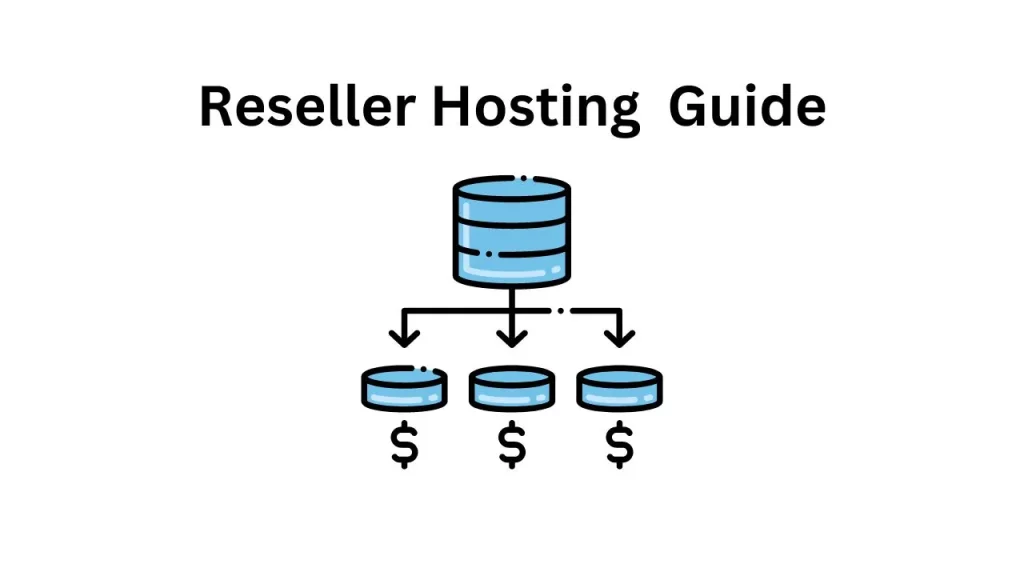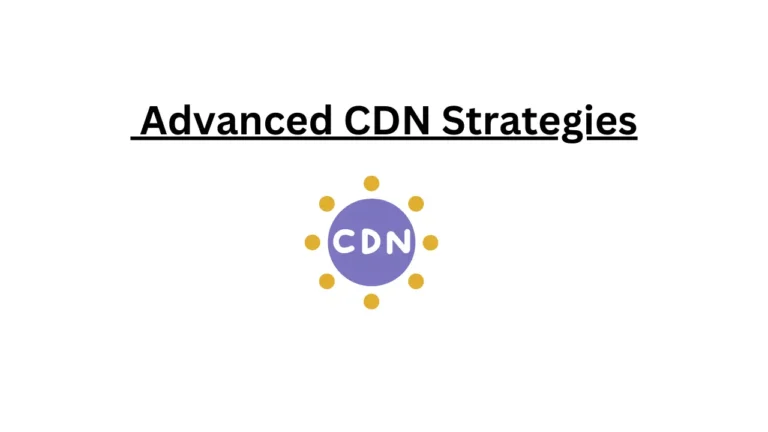I. Introduction
Reseller hosting involves purchasing hosting services from a larger hosting provider and then reselling them to individual clients. This model allows entrepreneurs to enter the hosting industry without the need for extensive infrastructure or technical expertise. It’s a cost-effective way to start a hosting business and tap into the growing demand for online services.

The reseller hosting market is booming, fueled by the increasing number of websites and online businesses. With businesses and individuals alike seeking reliable hosting solutions, reseller hosting presents a lucrative opportunity for entrepreneurs to capitalize on this demand and build a profitable business.
II. Understanding Reseller Hosting
Reseller hosting is a hosting model where individuals or companies purchase hosting services from a larger provider and then resell them to their own customers. Unlike traditional hosting, where the provider manages the servers and infrastructure, resellers are responsible for managing their hosting accounts, customer support, and billing.
One of the key differences between reseller hosting and traditional hosting is the level of control and customization resellers have over their hosting packages. Resellers can tailor their offerings to meet the specific needs of their target market, including disk space, bandwidth, and other features.
Advantages of reseller hosting include low startup costs, scalability, and flexibility. However, it also comes with challenges such as competition, customer support, and technical management.
III. Market Research and Analysis
Before launching your reseller hosting business, it’s crucial to conduct thorough market research to identify your target audience, niche, and competitors. Analyze the hosting market to understand current trends, demands, and gaps that you can fill with your services.
Identifying your target audience will help you tailor your offerings and marketing strategies to appeal to their specific needs and preferences. Analyze your competitors to understand their strengths, weaknesses, pricing strategies, and customer satisfaction levels.
Assess the market demand for hosting services in your niche and evaluate potential growth opportunities. By gathering insights from market research, you can make informed decisions and position your reseller hosting business for success.
IV. Setting Up Your Reseller Hosting Business
Choosing the right hosting provider is crucial for the success of your reseller hosting business. Look for a reputable provider with reliable infrastructure, excellent customer support, and competitive pricing. Consider factors such as server uptime, performance, and scalability to ensure a positive experience for your customers.
Selecting the right reseller hosting plan is equally important. Evaluate different plans based on features, pricing, and resource allocation to find the best fit for your business. Customize your hosting packages to meet the needs of your target market, offering competitive pricing and value-added services.
V. Building Your Brand
Developing a unique selling proposition (USP) is essential for differentiating your reseller hosting business from competitors. Focus on what sets your services apart and communicate this effectively to your target audience. Create a professional website that reflects your brand identity and showcases your offerings.
Establishing a strong brand identity will help build trust and credibility with your customers. Use consistent branding across all touchpoints, including your website, social media profiles, and marketing materials. Invest in quality design, content, and customer experience to leave a lasting impression on your audience.
VI. Marketing and Promotion Strategies
Utilize digital marketing channels such as SEO, PPC, and social media to reach your target audience and drive traffic to your website. Implement content marketing tactics such as blogging, guest posting, and video content to engage your audience and establish thought leadership in the industry.
Networking and partnerships can also be valuable for expanding your reach and generating leads. Collaborate with complementary businesses, influencers, and industry associations to amplify your marketing efforts and reach new customers.
VII. Providing Exceptional Customer Support
Exceptional customer support is crucial for success in the hosting industry. Set up effective support channels such as a ticketing system, live chat, and email to address customer inquiries and technical issues promptly. Train your support team to provide knowledgeable and friendly assistance to customers.
Handling customer inquiries and technical issues efficiently will help build trust and loyalty with your customers. Invest in tools and technologies that enable proactive monitoring and management of your hosting infrastructure to minimize downtime and disruptions for your customers.
VIII. Scaling Your Business
As your reseller hosting business grows, it’s essential to monitor and manage your resources effectively. Keep track of bandwidth usage, disk space, and server performance to ensure optimal performance for your customers. Scale your infrastructure as needed to accommodate growth and demand.
Expand your service offerings and diversify your revenue streams to capture new opportunities and maximize profitability. Consider offering additional services such as domain registration, SSL certificates, and website design to enhance the value proposition for your customers.
IX. Legal and Financial Considerations
Register your reseller hosting business and obtain necessary licenses and permits to operate legally. Set up payment gateways and billing systems to facilitate transactions and manage billing cycles effectively. Understand your legal obligations and liabilities as a hosting provider to mitigate risks and ensure compliance with regulations.
X. Managing Risks and Security
Implement robust security measures to protect your hosting infrastructure and customer data from cyber threats and attacks. Install SSL certificates, firewalls, and regular backups to safeguard sensitive information and ensure business continuity. Stay updated on industry regulations and compliance standards to maintain the security and integrity of your operations.
XI. Case Studies and Success Stories
Explore real-world examples of successful reseller hosting businesses to gain insights and inspiration for your own venture. Learn from their experiences, strategies, and challenges to avoid common pitfalls and accelerate your growth. Identify key takeaways and lessons learned that you can apply to your reseller hosting business.
FAQs
How much does it cost to start a reseller hosting business?
The cost of starting a reseller hosting business can vary depending on factors such as the hosting provider you choose, the features included in your hosting packages, and your marketing budget. Typically, you can expect to invest in reseller hosting plans, website development, marketing and promotion, and customer support infrastructure. It’s essential to budget carefully and consider both startup and ongoing expenses to ensure the financial viability of your business.
What are the key features to look for in a reseller hosting provider?
When selecting a reseller hosting provider, it’s essential to consider factors such as reliability, performance, scalability, and customer support. Look for a provider with a proven track record of uptime and reliability, robust infrastructure and resources, scalable hosting plans that can grow with your business, and responsive customer support available 24/7. Additionally, consider features such as white-label branding, customizable hosting packages, and value-added services to differentiate your offerings and attract customers.
How can I attract customers to my reseller hosting business?
To attract customers to your reseller hosting business, you’ll need to develop a comprehensive marketing strategy that includes a mix of digital marketing channels, content marketing tactics, and networking and partnerships. Utilize SEO, PPC advertising, and social media marketing to increase your online visibility and reach your target audience. Create informative and engaging content such as blog posts, tutorials, and videos to establish thought leadership and attract organic traffic. Additionally, forge partnerships with complementary businesses and influencers to expand your reach and gain credibility in the industry.
What are the main challenges of running a reseller hosting business?
Running a reseller hosting business comes with its unique set of challenges, including competition, customer support, technical management, and security concerns. Competing in a crowded market requires differentiation and effective marketing strategies to stand out from competitors. Providing exceptional customer support is essential for retaining customers and building trust and loyalty. Managing technical aspects such as server maintenance, security, and backups requires expertise and proactive monitoring to ensure the reliability and security of your hosting infrastructure.
How can I ensure the security of my reseller hosting infrastructure?
Ensuring the security of your reseller hosting infrastructure is paramount to protecting your business and your customers’ data from cyber threats and attacks. Implement robust security measures such as SSL certificates, firewalls, malware scanning, and regular backups to safeguard sensitive information and prevent unauthorized access. Stay updated on security best practices and industry regulations to mitigate risks and maintain compliance. Additionally, educate your customers about the importance of cybersecurity and provide resources and support to help them secure their websites and data.
What are some effective marketing strategies for promoting a reseller hosting business?
Effective marketing strategies for promoting a reseller hosting business include a mix of digital marketing channels, content marketing tactics, and networking and partnerships. Utilize search engine optimization (SEO) to improve your website’s visibility in search engine results and attract organic traffic. Invest in pay-per-click (PPC) advertising to target specific keywords and demographics and drive targeted traffic to your website. Create informative and engaging content such as blog posts, tutorials, and videos to establish thought leadership and attract potential customers. Additionally, leverage social media platforms to engage with your audience, share valuable content, and build relationships with potential customers. Forge partnerships with complementary businesses, influencers, and industry associations to expand your reach and gain credibility in the industry. By implementing a comprehensive marketing strategy, you can increase brand awareness, attract qualified leads, and grow your reseller hosting business.
XII. Conclusion
In conclusion, starting your own reseller hosting business offers a promising opportunity to enter the lucrative hosting industry and build a profitable venture. By following the steps and strategies outlined in this guide, you can lay the foundation for a successful reseller hosting business and achieve your entrepreneurial goals. Remember to stay committed, adaptable, and customer-focused as you navigate the exciting journey ahead.

